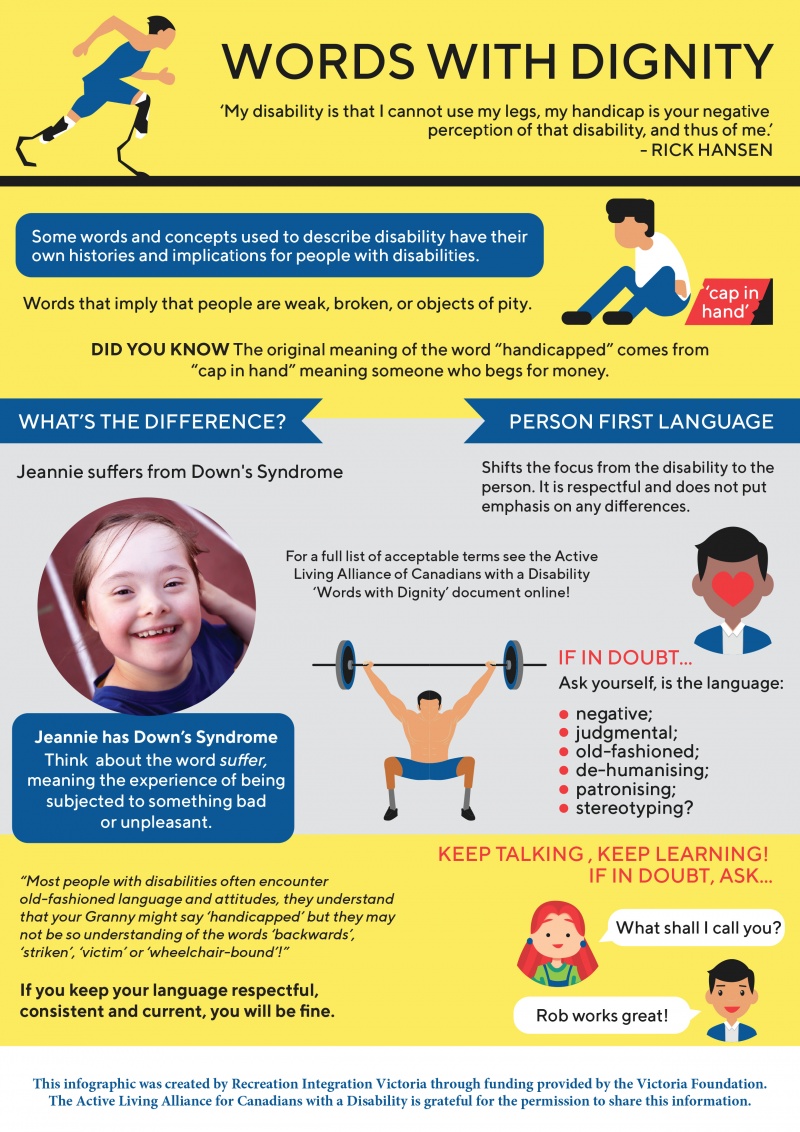WORDS WITH DIGNITY
Text version
‘My disability is that I cannot use my legs, my handicap is your negative perception of that disability, and thus of me.’
- Rick Hansen
Some words and concepts used to describe disability have their own histories and implications for people with disabilities.
Some words imply that people are weak, broken, or objects of pity.
Did you know that the original meaning of the word “handicapped” comes from “cap in hand” meaning someone who begs for money.
WHAT’S THE DIFFERENCE?
Jeannie suffers from Down's Syndrome VS Jeannie has Down’s Syndrome
Think about the word 'suffer' meaning the experience of being subjected to something bad or unpleasant.
PERSON FIRST LANGUAGE
Shifts the focus from the disability to the person. It is respectful and does not put emphasis on any differences.
IF IN DOUBT...
Ask yourself, is the language:
negative;
judgmental;
old-fashioned;
de-humanising;
patronising;
stereotyping?
KEEP TALKING , KEEP LEARNING!
IF IN DOUBT, ASK...
Often, the disability is irrelevant, you don't need to label a person. Simply refer to people by their name.
“Most people with disabilities often encounter old-fashioned language and attitudes, they understand that your Granny might say ‘handicapped’ but they may not be so understanding of the words ‘backwards’, ‘striken’, ‘victim’ or ‘wheelchair-bound’!”
If you keep your language respectful, consistent and current, you will be fine.
For a full list of acceptable terms see the Active Living Alliance of Canadians with a Disability ‘Words with Dignity’ document online!
This infographic was created by Recreation Integration Victoria through funding provided by the Victoria Foundation. The Active Living Alliance for Canadians with a Disability is grateful for the permission to share this information.





